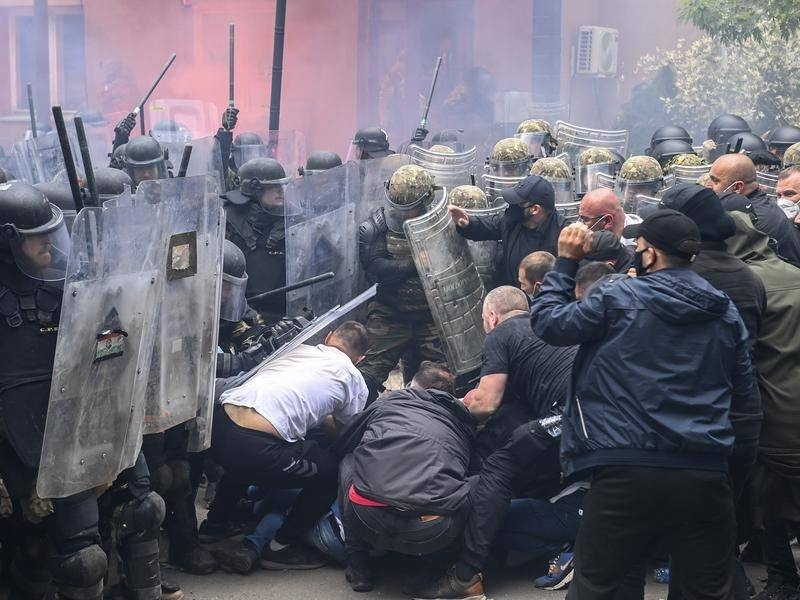NATO has deployed extra forces to Kosovo, a day after dozens of its peacekeepers were injured in clashes with protesters.

More than 30 NATO soldiers were injured in clashes with Serb protesters in Kosovo on May 29.
According to Politico.eu, NATO deployed additional forces to Kosovo on May 30, a day after dozens of the bloc's peacekeepers were injured in clashes with Serb protesters in Kosovo.
Fourteen Italian and 19 Hungarian soldiers from the Kosovo Force (KFOR), a NATO-led peacekeeping mission, were injured in northern Kosovo while trying to stop violent protests. According to KFOR, three of the Hungarian soldiers suffered gunshot wounds.
NATO condemned the attacks and called on “all parties to refrain from actions that increase tensions and engage in dialogue”.
In a Twitter post on May 30, the Allied Joint Force Command (JFC) in Naples said NATO is sending the Western Balkans Operational Reserve Force (ORF) to Kosovo.
“JFC Naples is closely monitoring the situation in Kosovo and will continue to coordinate with KFOR to ensure that they have all the capabilities and forces necessary to ensure a safe environment and freedom of movement for all communities,” the statement said, noting that additional reserve forces have been ordered to be ready to support KFOR if needed.
Adm. Stuart B. Munsch, commander of the Allied Combined Forces Command in Naples, said in a statement that “the deployment of additional NATO forces to Kosovo is a prudent measure to ensure that KFOR has the capabilities necessary to maintain security under its United Nations Security Council mandate.”
“I would like to commend KFOR for its swift, restrained and professional action in intervening to stop the unrest and save lives,” said Munsch, adding: “The violence must stop and all parties must stop taking actions that undermine peace in any and all communities in Kosovo.”
Tensions are running high in the region. On May 26, the United States, France, Italy, Germany and the United Kingdom issued a joint statement condemning Kosovo’s decision to force access to municipal buildings in northern Kosovo. The five countries also said they were “concerned by Serbia’s decision to increase the level of readiness of its Armed Forces at the border with Kosovo and called on all parties to exercise maximum restraint and avoid inflammatory rhetoric.”
Following the violent clashes on May 29, diplomatic representatives of the United States and the European Union (EU) in Kosovo condemned the actions of the protesters, while Russian Foreign Minister Sergei Lavrov also spoke out, saying that a major clash was breaking out in the heart of Europe.
Serbian President Aleksandar Vucic is scheduled to meet with ambassadors from the US, Russia, China, and the UK and the head of the EU delegation on May 30 (local time) to discuss the situation. He had previously placed the army on the highest alert when clashes broke out in Kosovo.
According to Tin Tuc Newspaper